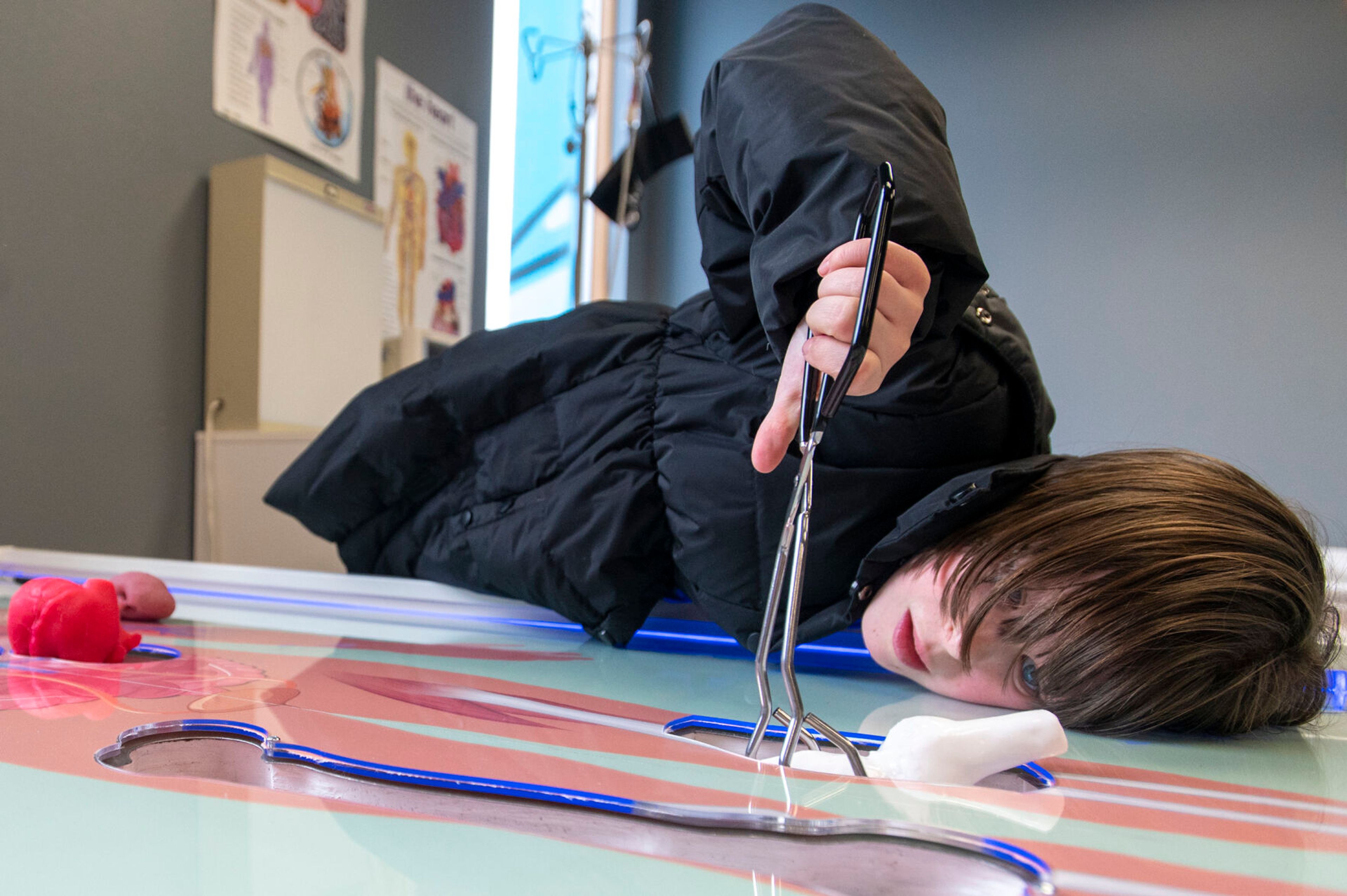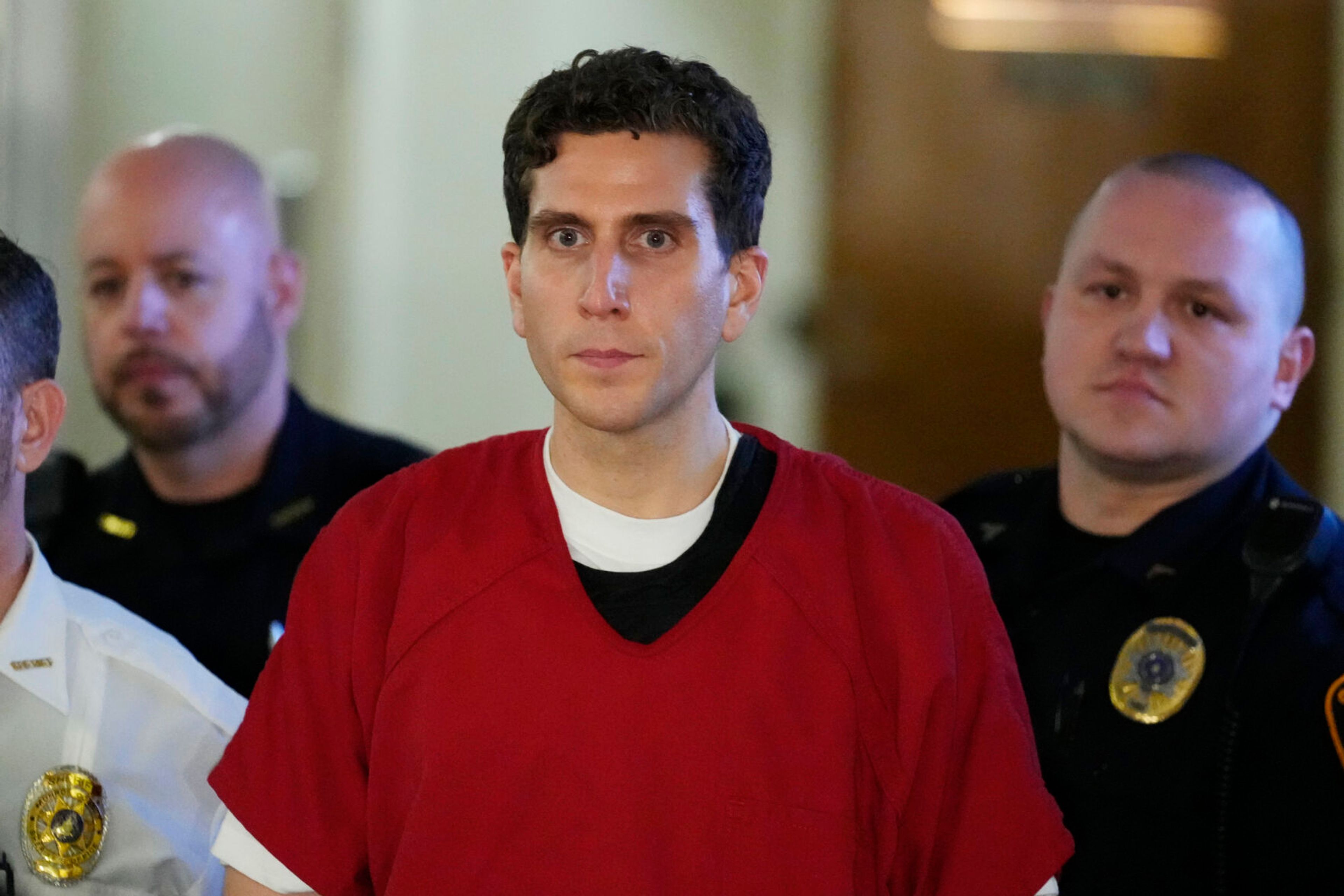WSU veterinary students unite, raise suicide awareness
Study shows veterinary students more likely to have suicidal thoughts than rest of U.S. adult population
Students at Washington State University's College of Veterinary Medicine pressed their teal and purple-painted hands to a white banner Wednesday afternoon to honor veterinary students who have died by suicide across the nation.
The event was part of a national movement known as #VetMedUnited and was promoted by the Student American Veterinary Medical Association, which focuses on personal wellness, mental health and honoring victims of suicide in the veterinary field.
About 50 students gathered outside Bustad Hall to paint the banner in a sign of solidarity with #VetMedUnited.
Veterinarians face mental health issues at about the same rate as the general population, but when it comes to seeking help, they sometimes struggle, Jacqueline Alford, a SAVMA delegate for WSU and second-year veterinary student, told her peers.
"In the veterinary community, we are very much Type A people," Alford said. "We are perfectionists in everything that we do."
Those types of students who find themselves earning their first "C" in a rigorous college veterinary course, facing crippling debt or having doubts about their future career can face significant amounts of stress and pressure, but they might not always seek help, Alford said.
"Doing things like this kind of breaks that stigma and says, you know, if you're not doing great, if you're not feeling great, if you're not whatever it is, go get help," Alford said.
A 2014 study published by the Centers for Disease Control and Prevention found U.S. veterinarians were more likely to suffer psychiatric disorders, experience bouts of depression and are more likely to have suicidal thoughts than the rest of the U.S. adult population.
A study published Tuesday by Merck Animal Health challenges those findings and offers new insights. The study included results from a survey of 3,500 American Veterinary Medical Association members and claims to be the first of its kind to measure veterinary well-being using widely agreed-upon scientific models and a "truly representative sample of the population."
While the study found veterinarians are not necessarily at a higher risk of suffering mental health issues than the rest of the population - approximately one in 20 veterinarians experience serious psychological distress - it did reveal that younger veterinarians were more likely to experience mental distress than the general population.
Among some of the key findings of the study: veterinarians age 45 and under are more likely to experience serious psychological distress than older male veterinarians and the general population. High student debt is a top concern for those veterinarians under 45, while stress levels and suicide rates among the 45 and under age group are also concerns.
Results of the study indicate just half of veterinarians who experience serious psychological distress are seeking treatment, while 16 percent are using resources available through national or state veterinary organizations.
WSU's College of Veterinary Medicine employs two full-time counselors to care for the needs of 460 students in its program, Charlie Powell, public information officer for the college of veterinary medicine, said. Those counselors provide mental health resources as well as preventive care.
Being a veterinary student can be a lot of pressure, especially when you have worked so hard to get to college in the first place, Kaylie Archer, a second year veterinary student at WSU, said. She said many at her school are willing to help out when times get tough.
"Not just the counselors, like even the professors. If I felt like I was struggling at all, I definitely feel like I could approach them, which I think makes WSU very unique," Archer said.
People experiencing suicidal thoughts can call the National Suicide Hotline at 1-800-273-8255.
Taylor Nadauld can be reached at (208) 883-4630, by email to tnadauld@dnews.com and on Twitter @tnadauldarg.










